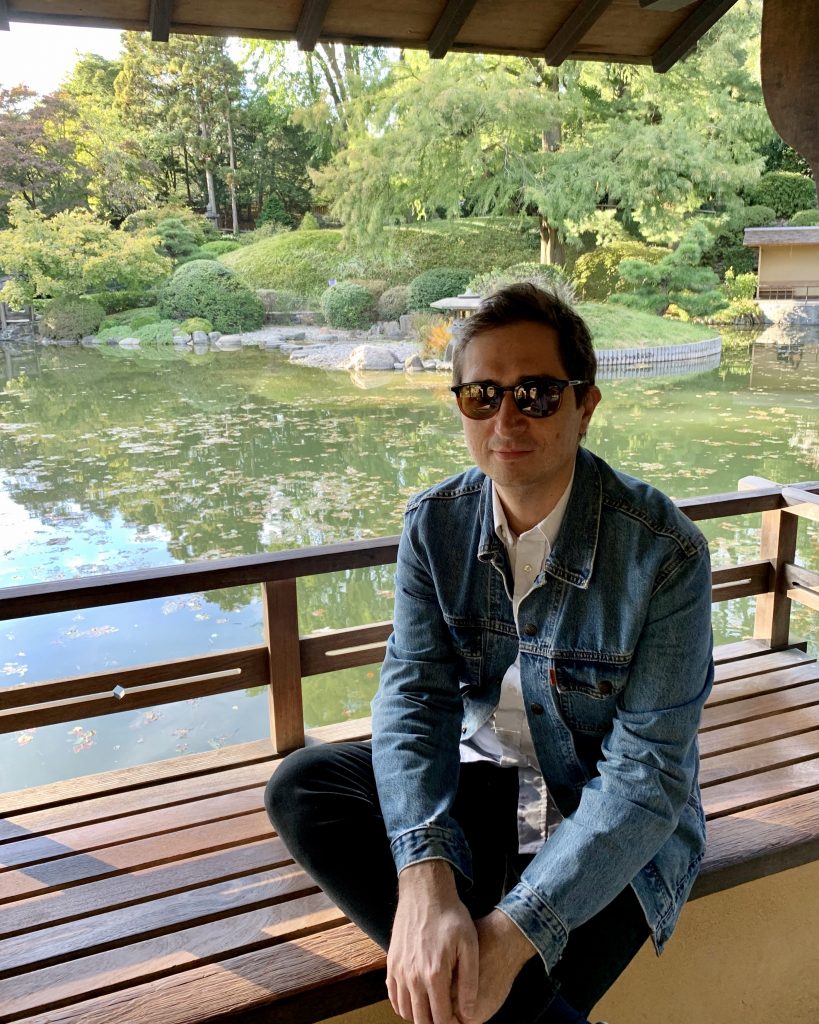Nicholas Smith

Associate Professor
Academic Literacy and Linguistics
EMAIL: nismith@bmcc.cuny.edu
Office: N-499M
Office Hours:
Phone: +1 (212) 220-1409
Nicholas Ryan Smith is an Assistant Professor in the Department of Academic Literacy and Linguistics, where he specializes in teaching Critical Thinking courses.
Before joining BMCC in 2015, Smith taught philosophy courses at John Jay College of Criminal Justice, St. Francis College, the University of Auckland, and Wake Forest University.
Smith’s research falls primarily in moral philosophy, especially virtue ethics. Additionally, he maintains an active interest in several other branches of philosophy, including epistemology, the philosophy of science, and ancient Greek philosophy.
Expertise
Virtue Ethics, Ethical Theory, Philosophy, Critical Thinking
Degrees
- Ph.D. University of Auckland, Philosophy, 2015.
- M.A. Stony Brook University, Philosophy, 2008.
- B.A. University of North Carolina at Charlotte, Philosophy and Religious Studies (double major), 2006.
Courses Taught
- Critical Thinking (Same as CRT 100) is designed to develop the mind and help students learn to think clearly and effectively. Through substantive readings, structured writing assignments and ongoing discussions, students will examine concrete examples from their own experience and readings and contemporary issues in the media to learn how to analyze issues, solve problems, and make informed decisions in their academic, professional, and personal lives.
- 3 CRS.6 HRS.NULL LAB HRS.CRT 100.6 (Critical Thinking for ESL Reading & Writing Proficiency (Same as CRT 100))
- This course combines Critical Thinking (CRT 100) with the highest level of ESL. Critical Thinking is designed to develop the mind and help sharpen students' ability to think clearly, logically, thoroughly, critically, and effectively. Through substantive readings, structured writing assignments and ongoing discussions, students will learn to use analytical skills in reading, writing, oral presentations, researching, and listening. Students will examine concrete examples from their own experience and readings and contemporary issues in the media to learn how to analyze issues, solve problems, and make informed decisions in their academic, professional, and personal lives.
While studying Critical Thinking, ESL students will also study advanced level reading and writing to master and apply a full range of college-level reading and writing skills including critical comprehension, flexible rates of reading, essay organization, paragraph development, sentence structure, vocabulary and word choice, content, and study strategies. Students read and respond to a variety of texts and use argumentation, narrative, and description as modes of developing ideas in writing.
Students will receive an earned grade in CRT 100.6, which is equivalent to a grade earned in CRT 100.
This is an accelerated course that combines credit-bearing and developmental content. Passing CRT 100.6 meets the reading and writing proficiency milestone requirements. Students who pass CRT 100.6 are exempt from further ESL reading and writing courses. CRT 100.6 may not be taken by students who have passed CRT 100 or are exempt from reading and writing.
Please note: Tuition for this corequisite course is charged by the equated credit (hours) not per credit. - This course develops students' abilities to reason well about scientific claims, scientific research, and the nature, value, and limits of scientific inquiry. To reason well about scientific claims, students understand and apply central scientific concepts, such as experiment, explanation, cause, effect, correlation, random sampling, testability, prediction, verification, and falsification. In addition, students evaluate instances of reasoning with such concepts by evaluating arguments for and against scientific claims and assessing the significance of possible outcomes of experiments. To reason well about the nature, value, and limits of scientific inquiry, students are introduced to central issues in the philosophy of science, such as the demarcation between science and pseudo-science, the reliability of scientific research, and the (un)reasonableness of beliefs about claims, such as moral and other normative claims, that fall outside the scope of sciences.
- The study of philosophy helps students develop analytic skills and gain an appreciation of the general philosophical problems with which human beings have grappled throughout Western civilization. Basic philosophic problems such as free will and determinism, the criteria which justify ethical evaluations, the philosophical considerations which are relevant to belief or disbelief in God, and knowledge and illusion are examined during this course.
Research and Projects
Publications
- Smith, N.R. “Well-Being, Narrative Value, and Virtue Ethics,” in Virtue, Narrative, and the Self: Explorations of Character in the Philosophy of Mind and Action, eds. Joseph Ulatowski & Liezl van Zyl (Routledge: forthcoming).
- Smith, N.R. “Target-Centered Virtue Ethics,” in Handbuch Tugendethik (Handbook of Virtue and Virtue Ethics), eds. Christoph Halbig & Felix Uwe Timmerman (Springer VS: forthcoming).
- Smith, N.R. “The Virtue of Hope,” in Neglected Virtues, eds. Glen Pettigrove & Christine Swanton (Routledge: forthcoming).
- Smith, N.R. “Hope,” in the Routledge Encyclopedia of Philosophy Online, eds. Tim Crane (general editor) & Elinor Mason (ethics editor), 2020.
- Smith, N.R. “Right Action as Virtuous Action,” Australasian Journal of Philosophy 96/2 (2018): 241-54.
- Smith, N.R. “Right-Makers and the Targets of Virtue,” Journal of Value Inquiry 51/2 (2017): 311-26.

